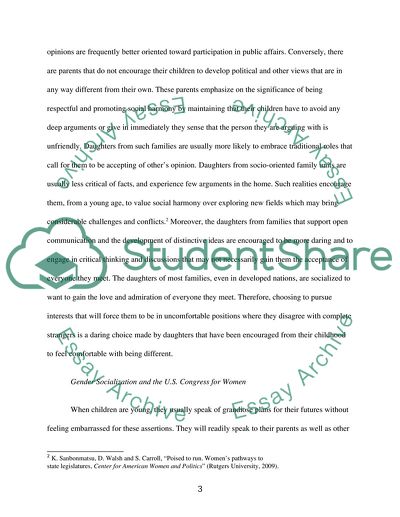Cite this document
(“The objective of this qualitative study will be to explore the Thesis”, n.d.)
The objective of this qualitative study will be to explore the Thesis. Retrieved from https://studentshare.org/history/1614248-the-objective-of-this-qualitative-study-will-be-to-explore-the-influence-of-socialization-and-ambition-may-have-on-the-under-representation-of-women-in-the-us-congress
The objective of this qualitative study will be to explore the Thesis. Retrieved from https://studentshare.org/history/1614248-the-objective-of-this-qualitative-study-will-be-to-explore-the-influence-of-socialization-and-ambition-may-have-on-the-under-representation-of-women-in-the-us-congress
(The Objective of This Qualitative Study Will Be to Explore the Thesis)
The Objective of This Qualitative Study Will Be to Explore the Thesis. https://studentshare.org/history/1614248-the-objective-of-this-qualitative-study-will-be-to-explore-the-influence-of-socialization-and-ambition-may-have-on-the-under-representation-of-women-in-the-us-congress.
The Objective of This Qualitative Study Will Be to Explore the Thesis. https://studentshare.org/history/1614248-the-objective-of-this-qualitative-study-will-be-to-explore-the-influence-of-socialization-and-ambition-may-have-on-the-under-representation-of-women-in-the-us-congress.
“The Objective of This Qualitative Study Will Be to Explore the Thesis”, n.d. https://studentshare.org/history/1614248-the-objective-of-this-qualitative-study-will-be-to-explore-the-influence-of-socialization-and-ambition-may-have-on-the-under-representation-of-women-in-the-us-congress.


